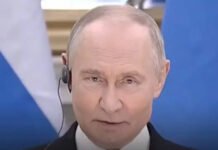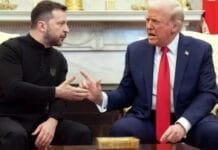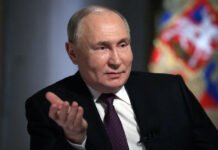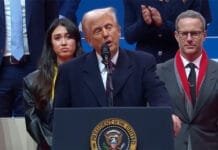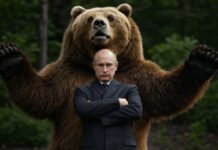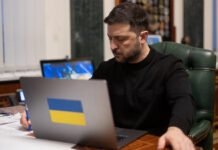INVC News
Pyongyang : Uncover the significance of Kim Jong Un’s visit to Russia and the pressing issues on the table, including arms deals, technology exchange, and food aid. A diplomatic event of immense importance.
The North Korean leader Kim Jong Un is set to embark on a journey to Russia to meet with President Vladimir Putin. This historic meeting is poised to have far-reaching implications, not only for the two nations involved but also for global geopolitics. In this comprehensive article, we delve into the details of Kim Jong Un’s visit to Russia, exploring the key agendas, the historical context, and the potential consequences of this high-stakes encounter.
The Journey Begins: Pyongyang to Vladivostok
Kim Jong Un’s choice of travel is as intriguing as the meeting itself. Unlike most world leaders who opt for air travel, Kim Jong Un prefers to traverse the vast distances by train. For his journey to Russia, he will embark on an armed train expedition that will take him from North Korea’s capital, Pyongyang, all the way to the Russian port city of Vladivostok.
This unique mode of transportation has its roots in history. The train, an interconnected marvel of engineering, was a gift from Joseph Stalin to Kim’s grandfather, Kim Il Sung, in 1949. It has since become an iconic symbol of the North Korean leader’s travels. When Kim Jong Un embarks on a journey, his entire entourage accompanies him on this meticulously designed train, reflecting the paramount importance of this mode of transportation to his regime.
The Agenda: Arms, Technology, and Food Aid
The primary focus of Kim Jong Un’s visit to Russia is centered around discussions on arms supply and military cooperation in the context of the ongoing conflict in Ukraine. American officials have revealed that these talks will be crucial in determining the extent of collaboration between North Korea and Russia in the war-torn region.
Russia, it seems, has a significant appetite for North Korean weaponry, particularly artillery shells and anti-tank missiles. In return, North Korea seeks satellite and nuclear submarine technology from Russia, underlining the intricate web of international relations at play. Additionally, Kim Jong Un will not shy away from addressing the pressing issue of food scarcity in his country. North Korea faces a dire shortage of grains, while Russia achieved a record-breaking grain production in 2017, positioning it as a potential source of much-needed aid.
A Diplomatic Stage: Eastern Economic Forum
Beyond the bilateral discussions, Kim Jong Un and President Putin are set to participate in the Eastern Economic Forum. This event, scheduled from September 10 to 13, will take place at the campus of Far Eastern Federal University in Vladivostok. It provides a unique platform for leaders to engage in economic dialogue and explore opportunities for regional growth and cooperation.
The presence of Kim Jong Un at this forum underscores North Korea’s interest in expanding its economic ties beyond the confines of its isolated state. The international community will be closely watching for any hints of economic openness or potential collaborations that could emerge from this event.
Naval Exploration: Pier 33 and the White House’s Warning
Amidst the diplomatic engagements, Kim Jong Un may also visit Naval Base Pier 33 of Russia’s Pacific Ocean Fleet. This move has garnered attention and raised concerns on the global stage. The White House, in particular, has issued a warning regarding the ongoing arms deal negotiations between Putin and Kim.
White House spokesperson John Kirby emphasized the increasing level of high-level talks related to military cooperation between North Korea and Russia. However, specific details about these discussions remain shrouded in secrecy, leaving the international community speculating about the possible outcomes.
The Broader Implications
The meeting between Kim Jong Un and President Putin carries significant weight, not only for the two nations involved but also for the global balance of power. North Korea and Russia, both considered hostile to the United States, are coming together in a move that challenges the existing geopolitical order.
The outcomes of this diplomatic engagement have the potential to reshape alliances and create new dynamics in an already complex international landscape. As we witness this historic meeting unfold, the world holds its breath, awaiting the developments that will undoubtedly reverberate far beyond the borders of North Korea and Russia.
In Conclusion
In conclusion, Kim Jong Un’s visit to Russia to meet President Vladimir Putin is a watershed moment in international diplomacy. The choice of transportation, the agendas on the table, and the potential consequences make this event one of paramount importance on the global stage. As discussions progress and details emerge, the world watches with bated breath, aware that the outcomes of this meeting could reshape the course of history.

